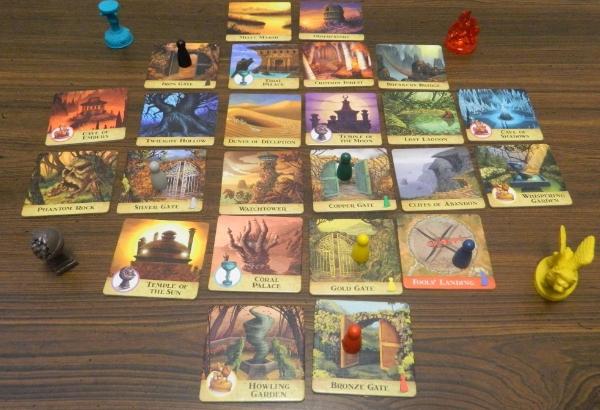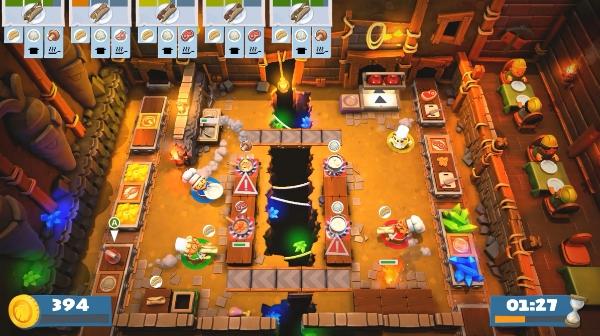Cooperative games are redefining playtime by replacing the idea of “winning and losing” with “collaboration” towards achieving a common objective.
These games are becoming increasingly popular as they help to develop important social and emotional skills in a manner that cannot be achieved through competitive play.
Studies such as one conducted by the Journal of Neonatal Surgery have proven that the incorporation of these games can result in significant gains in communication, empathy, and collaborative behavior in children.
This paper will thus examine cooperative games as a resource for kids. We will find out the best cooperative games across various genres and age groups. And provide tips on selecting appropriate games to play with kids.
How to play cooperative games?
Cooperative games are structured games in which all players collaborate as a single team to accomplish a shared goal instead of competing to win individually.
The games are based on the core concept that players either win or lose, but as a group, against a common obstacle created by the game.
Such a dynamic changes the emphasis from beating others to problem-solving together, creating a friendly and inclusive atmosphere.
This core structure is the major distinction between conventional competitive games and these cooperative games.
With competitive games, failure of one player translates to success of another, which may be frustrating and isolating.
But on the contrary, cooperative games do away with this antagonistic association.
Players combine their resources, plan together, and share in their successes. This, in turn, naturally fosters the growth of teamwork and cooperation.
Benefits of playing cooperative games
The increasing popularity of cooperative games is rooted in their inherent, evidence-based advantages, which span the cognitive, social, and emotional growth of a child.
These games are not just fun. By design, they are dynamic learning tools that develop critical life skills in a low-pressure and engaging environment.
Social and emotional benefits: Building the heart of teamwork
You would usually observe the greatest influence of cooperative games in the social and emotional impact they have on a child.
The games are a masterpiece in empathy. Players have to think all the time about the views, skills, and emotions of their teammates in order to win.
Moreover, they provide a secure environment where children can develop vital communication skills by collaborating in groups.
Children learn how to express ideas, listen, and negotiate strategies, realizing that clear dialogue is key to winning games.
Cognitive benefits: Exercising the mind together
In addition to social skills, cooperative games provide considerable intellectual exercise. They instinctively promote problem-solving and critical thinking in groups.
Children must think critically about problems, brainstorm innovative solutions, and collaboratively evaluate various tactical steps.
This reasoning togetherness frequently results in more creative results than when operating in solitude.
Many cooperative games also rely on remembering rules and planning multiple moves in advance, thereby developing memory and functional skills.
Emotional resilience: Learning to manage feelings as a group
Another distinctive benefit of the cooperative games format is the positive attitude towards failure.
The fact that players will lose collectively eliminates the hurt associated with personal defeat, repackaging it as a team learning exercise.
Such an arrangement minimizes anxiety and the fear of mistakes, motivating children to take healthy risks.
Rather than finding someone to blame when a loss occurs, the group is encouraged to talk about how they could do things differently next time. This develops resilience and a growth mindset.
Keep tabs on their gaming fun with real-time monitoring.
Popular cooperative game genres
Cooperative games come in a variety of forms, and each one of them has its own distinct mechanics.
Although the objective is always the same, shared victory, the interaction and manner in which players solve problems can vary across genres.
Board games



Cooperative board games are an enjoyable and interesting method to familiarize children with the idea of collaboration.
Such games frequently feature a common board, pieces, and a common objective, typically to beat the game before some negative event happens.
A few examples of cooperative board games include.
1. Forbidden Island
In this game, players are members of an adventure group that is out to seize sacred treasures on a sinking island. However, this has to happen before the sea engulfs the island.
Every player takes on a different role, and their capacity to integrate talents and coordinate efforts determines success.
2. Pandemic
Pandemic puts a group of disease-fighting experts to the task of preventing the spread of four fatal diseases.
Players must strategically plan their resources and unique abilities to find cures and stop outbreaks. The game emphasizes long-term planning and collective responsibility.
Card games
Cooperative card games tend to be more communication-oriented and puzzle-solving. They are easy to carry around and are made for having fun on the move.



Examples of cooperative card games would be
1. The Mind
This is a unique card game, where players play cards in an ascending order, without uttering any words.
It is an effective practice in non-verbal communication and synchronicity. It teaches players to be aware of what the other is doing and their intentions, in order to reach a shared objective.
2. Hanabi
In this game, players collaborate to produce an amazing fireworks presentation. The twist is that you keep your cards facing the opposite direction, so only your teammates can see them.
Players have to provide each other with little hints regarding their cards to ensure that everyone plays the correct card.
Outdoor and physical activities
These games not only keep kids active but also reinforce teamwork and problem-solving in an engaging real-world environment.
They are beneficial when dealing with larger groups and in developing physical coordination, as well as social skills.
Examples of cooperative outdoor games include.
1. Human Knot
A classic team-building activity in which a group of people stand in a circle. They then form a knot by holding hands with two people who are not next to each other.
The group aims to undo the knot without anyone releasing hands. It involves attentive communication, patience, and cooperative problem-solving.
2. The Big Squeeze
The participants are in a circle with their hands interlocked. One individual initiates a squeeze by squeezing the next person’s hand, and the squeeze travels around the circle.
The task of the group is to determine how quickly they can squeeze through the entire circle. Emphasis is on concentration and collective rhythm.
Digital and video games
The video game industry has not been left out either, as the cooperative format has also been adopted on digital games. Gaming friends can now collaborate online.



A few examples of cooperative online games include.
1. Overcooked!
This is a fast-paced game in which players take on the role of chefs operating in hectic kitchens, cooking and serving customers.
It involves making decisions within seconds and being in constant communication to coordinate orders and kitchen operations.
2. Minecraft
Although it is commonly played in a competitive format, its cooperative survival and creative modes are extremely popular.
It focuses on teamwork and collective creativity as players work together to create structures, collect resources, and fight off monsters.
Best cooperative games for different age groups
When selecting cooperative games for children, it’s essential to consider the child’s age. This is so that you can make the experience enjoyable and developmental for them.
Games targeting younger children focus on the simplest ideas, such as colors and shapes. Whereas games for older children introduce more complicated strategies and plots.
Toddlers and preschoolers (Ages 2-5)
Cooperative games at this age should be easy. Great emphasis must be given to turn-taking, matching colors, and gross motor skills.
These games bring the concept of common purpose without the strain of complicated rules, for example:
- Tower Building. An easy game in which children can collaborate to construct an altar with blocks, encouraging collaboration and counting abilities.
- Bedsheet Ping Pong. A fun game with two teams holding a bedsheet and attempting to have the balls fall on the other side. It promotes coordination and teamwork.
Let us have a closer look at the Tower Building. In this game, children are split into groups and roll a dice to see how many blocks they are to stack on the tower.
The team with the tallest tower at the end wins. The game is ideal for toddlers as it facilitates teamwork, counting abilities, and fine motor skills.
Early elementary (Ages 6-8)
As children develop their cognitive skills, they are able to deal with more complex rules and can think strategically.
Cooperative games at this age group tend to be about problem-solving and collective deduction, for example:
- Snug as a Bug in a Rug. An interactive and personalizable board game in which children play together to remove bugs under a carpet.
- HABA My Very First Games – First Orchard. A social board game that can be played by young children and encourages cooperation and fine motor skills.
Let us look at Snug as a Bug in a Rug. In this game, players collaborate to ensure that colorful bugs are under a rug before stink bugs reach the top.
This game is best suited for preschoolers, as it helps them develop fine motor skills, color recognition, and social-emotional skills. It is also customizable and hence flexible for various skill levels.
Older Children (Ages 9+)
More complex cooperative games with rich storylines, complex strategy, and more challenging communication can be enjoyed by older children.
Family game nights would be wonderful with these games, as they are usually challenging enough to be enjoyed by adults, for example:
- Zombie Kidz Evolution. A developing legacy game where players fight zombies in a school environment with unlockable upgrades.
- Wildcraft!. A collaborative board game in which the players collaborate to harvest berries and herbs.
Let us consider Zombie Kidz Evolution in more detail. The task is to play together as children and protect their school against zombies. The zombies are spawned in rooms by rolling a die.
It is a legacy-style experience, designed to evolve with repeated play, which is best suited to older children.
Online cooperative games for kids
The play landscape has been extended to the digital realm, and along with it, the emergence of online collaborative games.
These platforms enable children to interact with friends and peers remotely and collaborate to accomplish objectives in the virtual worlds.
The beauty of online cooperative games is that they provide a shared experience that can be enjoyed irrespective of physical location.
They also tend to foster a sense of community and provide a fun way for kids to socialize outside of school.
Most online cooperative games are age-appropriate and are offered in a variety of options to suit different interests.
One such example is Minecraft, in which players come together to create worlds and explore with others on common servers.
Other favorites include “Animal Crossing” to visit islands together, and “Among Us” to play light-hearted deductions.
However, as much as there are numerous advantages associated with online cooperative games, it is important that parents ensure a safe and positive experience for their children.
Tips for choosing the right cooperative game for kids
The choice of a cooperative game can be a big factor in determining how much a child likes it. As well as how well they learn.
With a couple of considerations, you can make sure that the game will be a perfect fit in your family and bring the desired developmental value.
- Age and complexity. A game that is overly complicated will cause frustration in a child. One that is overly simple will be boring. Look for the recommended age range on the game box.
- Playtime. Take into account the average duration of a game session. A 15-minute game would be ideal on a busy day. For a 45-minute game, it may be more appropriate for a dedicated family game night.
- Group size. The majority of cooperative games have a designated number of players. Make sure the game you pick will fit the number of people who will be playing at the time.
- Theme and interest. The theme of the game must be attractive to your child. An interesting theme will capture the children’s interest and make them eager to play.
With online cooperative games such as Minecraft, although their popularity cannot be denied, they also pose new challenges to screen time, content, and communication with strangers.
Parental controls on consoles are a start. However, a dedicated parental control app, such as FlashGet Kids, can offer a comprehensive and easy-to-manage solution for parents.



FlashGet Kids is equipped with a set of tools to track and control their child’s digital activities, creating a safe online space.
Some of these FlashGet Kids features include
- Screen time. This option allows parents to limit gaming time on a daily or weekly basis. This is to ensure your child maintains a balance between online play and other activities, such as homework.
- App Blocker. FlashGet Kids allows parents to limit access to specific applications or to block them altogether at specific times, like during study time. This feature is particularly useful for controlling the time spent on gaming apps.
- Browser safety. This can be used to prevent children from being exposed to unsuitable online material, as it filters and blocks unsafe sites. It also enables parents to view their child’s browsing history, helping to ensure that they are only visiting age-appropriate sites.
- Usage reports. Detailed reports about the use of the child’s device provide parents with a clear picture of the child’s digital habits. Parents can use this information to conduct informed discussions on the responsible use of devices and reveal any alarming trends.
Taking these factors into consideration and relying on tools such as FlashGet Kids, parents will be able to help their children enjoy cooperative games while keeping them safe and healthy.
Conclusion
Cooperative games are an effective means of developing critical life skills among children through play.
They support teamwork, communication, and empathy by helping kids collaborate towards shared objectives instead of competing.
In all types of cooperative games, including board games and online applications, children of all developmental stages can interact, fostering social, emotional, and cognitive development.
Parents will just need to be critical in selecting appropriate games and provide a safe online environment using tools such as FlashGet Kids.

